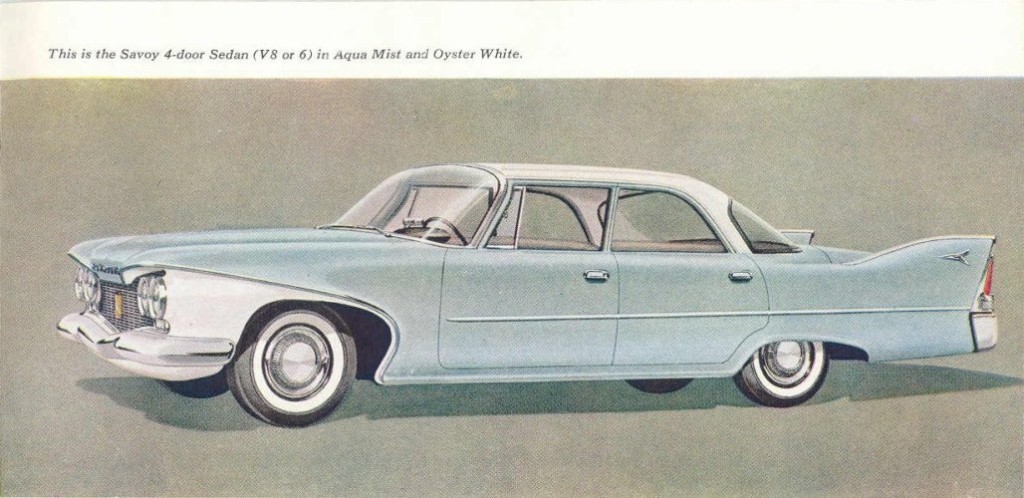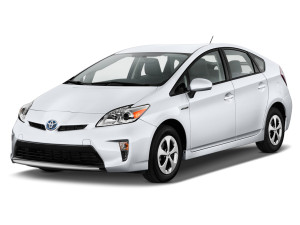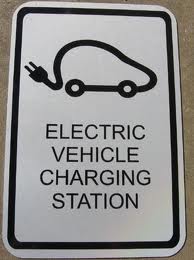December 18th, 2015
BURLINGTON, ON
There are only a few days left to buy something to put under the tree for my wife. But what I really need is another car. My beloved decade-old Prius has found a new home with my daughter. I bought the car after reading “The Weather Makers” by Australian paleontologist and climate scientist, Tim Flannery. He was so persuasive I even wrote a song about him.
According to Flannery the single best thing we can do to reduce our carbon footprint is stop driving gas guzzlers. So, I bought a hybrid. And after 200,000 kms at 4.9 l/100 kms (60 mpg), I figure half of my mileage (100,000 kms) was virtually costless and free from emissions, when compared to a conventional auto.
Last week almost 200 national leaders signed up to the Paris (climate) Agreement. But that was the easy part. We’ve been this road before with the Kyoto Protocol, back in 1997, only to find a change in politics killed the deal. Climate deniers GW Bush and our own Stephen Harper did their best to scuttle any attempts at restraining global warming.
And thanks in some small part to them, 2015 will be the warmest year on record. Greenland’s vast glaciers are now melting twice as fast as predicted by climate scientists. And that means that rising sea levels combined with declining polar ice packs will shift the earth’s mass towards the equator slowing down the planet’s rotation and shifting it on its axis – scary stuff.

Ice fields in Greenland melting faster than anyone predicted – water flows towards the equator impacting the way the earth rotates – and some still don’t see climate change as a problem.
Mr. Trudeau has committed to meet with the premiers and come up with a feasible plan of action early in the New Year. A major component of any plan will be a smorgasbord of carrots and sticks to help Canadians get out of old habits. For example, since almost half of all Canadian homes are heated with natural gas, we should expect some financial help with home insulation and alternate heating. And a carbon tax on heating fuels would make sense to help fund these kinds of incentives.
Transportation accounts for about a third of our greenhouse gas emissions and the private motor car makes up about half of that, so expect more incentives to get us onto the new public transportation they keep promising, and into more efficient automobiles. Ontario already offers rebates of up to $8500 for full battery-electric vehicles (BEV) and $5000 for plug-in hybrid vehicles (PHV). But the uptake hasn’t been huge and good luck trying to find them at the car dealer. And even better luck finding a salesperson who knows anything about electric vehicles (EV), PHVs or even hybrids – or understands why you should buy one.
But that’s pretty much it – the rest is stuff we individuals can’t do. The oil sands will require a massive clean-up one way or the other, given where oil prices are going. Some provinces in the prairies and Maritimes will need help converting their electricity generation, as Ontario did recently. Then there is the need for increased reforestation and the development of green technologies.
Fighting wars requires massive amounts of energy and results in all kinds of emission releases, especially when oil-tank cars are being hit by bombs. Yet there has been no discussion of finding better ways to resolve conflicts among nations – especially as the world enters a new era of global tension.
International trade, well that is all about moving goods great distances and burning lots of fuel. It is pure hypocrisy when governments which support more free trade simultaneously sponsor those buy-local campaigns. And speaking of goods transport, trucks now release almost as much greenhouse gas emissions as cars. There was a time when most goods were transported around the country efficiently by rail. Today the rail cars are all busy carrying oil to refineries so it can be burned by the trucks which have now replaced them.
Some folks are saying we need to change the foods we eat as well. According to one researcher lettuce has a greater GHG footprint than pork production. But I don’t believe it. Still other researchers claim that meat production accounts for 15% of all GHG emissions. To that end New Zealand has implemented a cow ‘fart tax’. And beef is the worst of the meats apparently, being labelled the ‘SUV of food’. Which gets us back to motor vehicles.

Gas was cheap and the highways were seldom clogged – the drivers felt like Kings – those were the days!
I confess that I have always been a car buff. I was just a tadpole when my dad brought home a new Plymouth with those monstrous fins. He wintered his beautiful baby in our barn and I’d occasionally climb in behind the odd-shaped steering wheel and stare at the push button transmission, pretending I was actually driving the big V8 powered behemoth.
My dream car today is the Tesla, named after Nikola Tesla the brilliant Serbian inventor. The car was developed by Elon Musk, a Canadian/American South African guy who invented PayPal and runs Space X as well. A friend of mine has one of these electrically powered beauties and it can go over 300 kms on a charge and move like a cat on catnip. But it costs a bomb and is the only EV with the kind of range I’d be comfortable with, given where I live.
So, unless my publisher pays me a lot more money to write these columns, I’d have to sell my farm and move to the city in order to be able to afford one. But if I did that, one of those more modest EV would do the job – or I could just use environmentally friendly public transportation instead. I hope you’re having better luck with your Christmas shopping than I am.
 Ray Rivers writes weekly on both federal and provincial politics, applying his more than 25 years as a federal bureaucrat to his thinking. Rivers was a candidate for provincial office in Burlington where he ran as a Liberal against Cam Jackson in 1995, the year Mike Harris and the Common Sense Revolution swept the province. Rivers is no longer active politically.
Ray Rivers writes weekly on both federal and provincial politics, applying his more than 25 years as a federal bureaucrat to his thinking. Rivers was a candidate for provincial office in Burlington where he ran as a Liberal against Cam Jackson in 1995, the year Mike Harris and the Common Sense Revolution swept the province. Rivers is no longer active politically.
Background links
Cool Video Tim Flannery Flannery Song Paris Agreement
Ignorant Car Dealers Tesla What People Can Do The Hard Work Begins
Earth Slowing Down Electric VehiclesRoad Transport
Trade and Climate Household Energy Use Unattainable
Cow Farts Electric Vehicles EV Rebates
Car and Truck Emissions Greenland Melting Lettuce Causes Climate Change
























Gareth,
I was aware that Ontario no longer burned coal for electricity generation, but that isn’t very relevant to global warming. Burning methane (natural gas) still contributes to global warming, although it reduces the air pollution produced (particulates such as ash and soot, and sulphur dioxide) by burning coal.
The Paris climate agreement is a joke. It’s not a treaty and regulations are not binding on any signatory. Failure to live up the the agreement results in some severe finger wagging.
An interesting and complex subject. Electric cars may not be a panacea either, and may have a negative effect on the environment if the batteries end up in landfill. I understand that battery production causes significant pollution as well. In addition, the electricity required for charging may be produced in many cases by burning natural gas or other carbon-based fuels; combined with electricity system line loss, electric car efficiency may not be quite as good as it would seem.
While the effect of “flashing off” much of the planet’s oil in a relatively short time, as we have done, is a highly probable contributor to climate change, there are other important factors and questions that should be considered. For starters:
– Would the planet have cooled without the burning of those enormous quantities of oil and gas? How much, and with what effects?
– What is the effect of the population increase to ~7 billion in the last 100 or so years? Each person represents a “heating element” on the surface of the planet.
– What is the effect of the change in earth’s albedo from paving large areas with asphalt, and from deforestation?
– CO2 is colourless and clear. I have seen no proof for a common opinion that CO2 is a “greenhouse” gas with significant insulating properties. However, the presence of CO2 does indicate that an exothermic reaction (oxidation) has occurred, with an attendant contribution to planet temperature increase.
– Planet warming causes increased ocean evaporation. The resulting increased cloud cover blocks the sun’s radiation and has a cooling effect, which offsets somewhat the heat produced by carbon oxidation. When the incremental evaporated water eventually condenses, excessive rain will cause increased flooding, as we have seen in recent times.
– The effect of millions of tonnes of jet fuel (it’s essentially kerosene) being burned continuously at high altitudes must surely affect climate.
– Warming causes glaciers to break up and enter the oceans. The effect is similar to putting ice cubes in a glass of water; the smaller the cubes, the faster the water is cooled. This effect can mask ocean warming until there are no more glaciers and ocean warming will then accelerate.
We would do well to remember that we exist within a system and changing any component will affect the rest of the system. Although mankind may contribute little to warming compared to a volcanic eruption or to solar flares (as climate change deniers are keen to point out), the incremental amount that we contribute could be the critical portion that makes planet Earth uninhabitable. Climate change deniers should consider that possibility.
The material in car batteries is too valuable to throw in a landfill. The batteries have a useful life as energy storage for buildings long after they complete their duty in vehicles. GM is already doing this with cells taken from totaled Volts in some of its data centers to reduce their peak load on the grid by charging them up overnight (similar idea to the Tesla Powerwall). See this link for more info.
Also, to your point about the source of power used to charge EVs, in case you hadn’t heard Ontario was the first region in North America to ban burning coal for power. With the US regulations being updated, it won’t be the last. With increased deployment of renewables and large scale energy storage becoming a reality, the grid which powers EVs is getting cleaner year after year. The same can’t be said for gas cars, which start out dirty and get dirtier.
The Union of Concerned Scientists studied the impact of EVs including the production of batteries and found that the increase in emissions related to their production was offset in as little as 6 months of operation. See Cleaner Cars from Cradle to Grave
An exceptionally well written and level headed presentation of a reality which, in other writers’ hands, would likely be an off-putting diatribe.
As explained, we do live in a world which dis-empowers individuals from the options to enact significant changes on a global level, but we can act wisely on those choices we do have.
I must thank Mr. Rivers for information which prevents me from moving to New Zealand; I could never afford the fart tax for my wife.
Ray I’d encourage you to take a look at the Chevy Volt. It is an EV for the first 85km and then it becomes a Prius-type hybrid, running on gas until you plug it in again. It is eligible for the full $8500 rebate. My wife and I have had a 2012 model for 3.5 years and it is fantastic. We’ve averaged 1L of fuel for every 100km, basically only using the gas engine on longer trips. Maintenance costs are minimal – we’ve only had to do one oil change and there have been no other repairs needed. I agree that some perseverance is required to get a cooperative dealer and you are right the salespeople know next to nothing about them unfortunately. If you can’t find one for a test drive please contact me I’d be glad to let you try mine out.
Regards,
Gareth Williams
Chair, Burlington Sustainable Development Committee